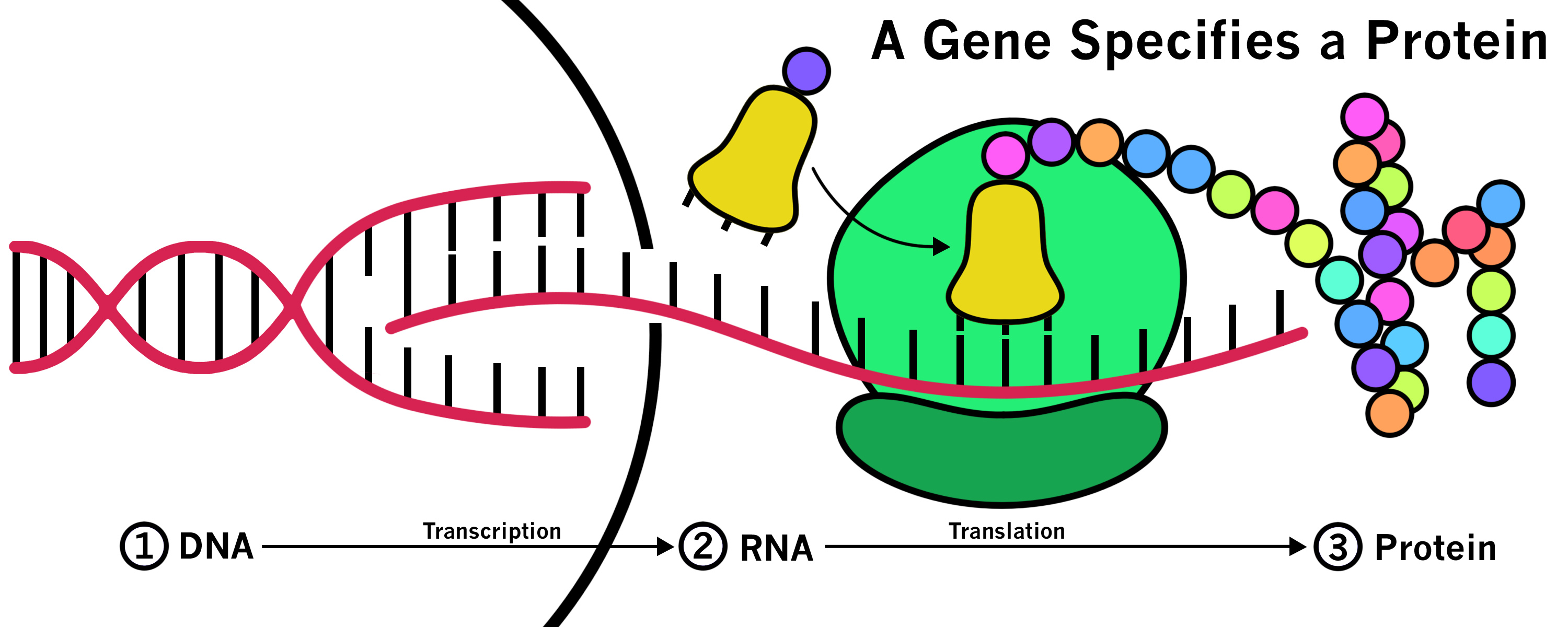Team Seeks Link Between Massive RNA Recoding, Environmental Acclimation

Octopus, squid, and cuttlefish are extraordinary animals in many ways. Although they are soft-bodied creatures related to sea slugs and clams, they engage in sophisticated behaviors that can eerily resemble vertebrate intelligence.
In 2015, Joshua Rosenthal of the MBL, Eli Eisenberg of Tel Aviv University and colleagues discovered a striking trait in squid: They edit the RNA transcripts in their own nervous system at extremely high rates. This allows them to produce not just one type of protein from a given gene, as is typical, but multiple and distinct protein products. (See illustration below).
Why squid, octopus and cuttlefish (the coleiod cephalopods) carry out such extensive RNA recoding – what function it may serve – isn’t known. Exploring this question is the focus of a grant recently awarded to Rosenthal and Eisenberg from the United States-Israel Binational Science Foundation.
The research will explore the hypothesis that these cephalopods use RNA editing for neural acclimation to environmental pressures. It will explore this idea by looking at how RNA editing relates to three progressively complex pressures: temperature; the daily light-dark cycle; and learning through a training regimen.
 Stages in gene expression: (1) The DNA in a gene is copied, or transcribed, into messenger RNA, a highly similar molecule which is then exported from the nucleus. (2) Once in the cytoplasm, the information within the messenger RNA is decoded, or translated, into proteins (3) by the ribosome (green) which uses transfer RNAs (yellow) loaded with individual amino acids (colored). In squid, octopus, and cuttlefish, a great deal of genetic information is edited in RNA transcripts, just prior to translation. Illustration by Alana Thurston
Stages in gene expression: (1) The DNA in a gene is copied, or transcribed, into messenger RNA, a highly similar molecule which is then exported from the nucleus. (2) Once in the cytoplasm, the information within the messenger RNA is decoded, or translated, into proteins (3) by the ribosome (green) which uses transfer RNAs (yellow) loaded with individual amino acids (colored). In squid, octopus, and cuttlefish, a great deal of genetic information is edited in RNA transcripts, just prior to translation. Illustration by Alana ThurstonThe proposed experiments build on a fruitful collaboration between the Rosenthal and Eisenberg groups over the past four years. Both labs focus on RNA editing, but from distinct angles. Eisenberg is a computational biologist who has developed approaches to study RNA editing across transcriptomes (the set of all RNA molecules in one cell or a population of cells). Rosenthal’s expertise is in molecular biology, ion channel physiology, and cephalopod biology. The work will illuminate two fundamental questions in biology: How is genetic information used for acclimation? What are the molecular underpinnings of complex behavior?
